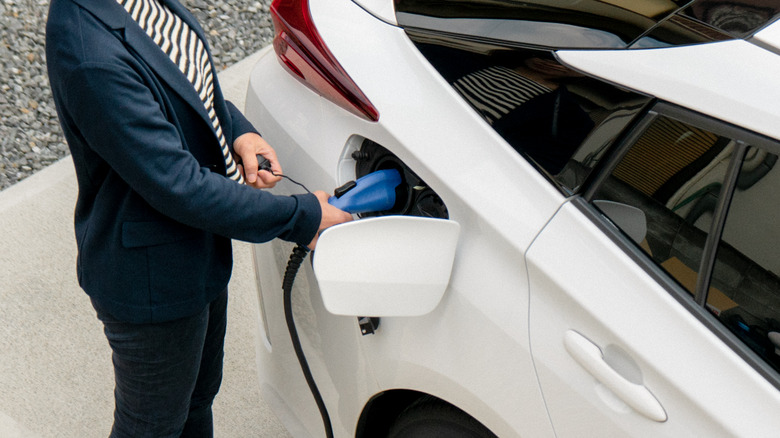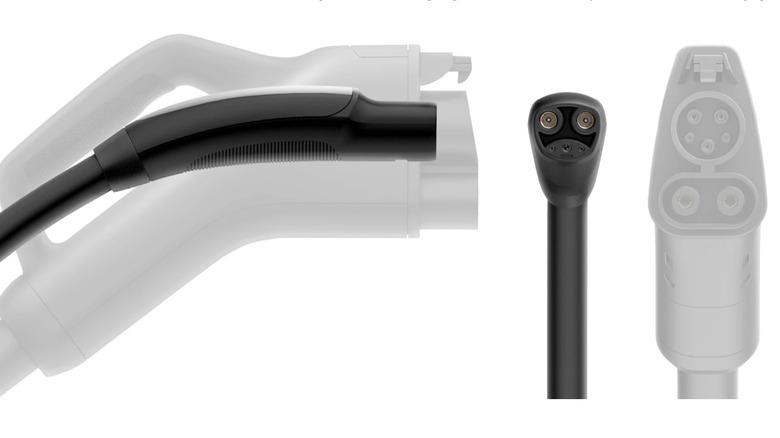SAE Eyes NACS Standard As Tesla's Big Plug Gamble Pays Off
SAE International, which names standards in aerospace, defense, medical, and automotive industries, has announced that it will support Tesla's North American Charging Standard (NACS) as the standard for electric vehicles. This move, which follows major auto manufacturers like Ford and GM adopting Tesla's plug, is a huge step for the EV industry and creating a unified network of charging stations nationwide.
The NACS was previously Tesla's proprietary port; last fall, its name was changed to the North American Charging Standard, with Tesla saying that it opened its design to other companies "in pursuit of our mission to accelerate the world's transition to sustainable energy." The connector, which has already been in use by Tesla for a decade and credited with 20 billion EV charging miles, is capable of AC charging and up to 1 megawatt DC charging. Compared to its biggest rival, the Combined Charging System (CCS), the NACS is half the size and twice as powerful. It also has no moving parts, making it easier to manufacture on a large scale.
As the name change implied, Tesla has been working with the U.S. Joint Office of Energy and Transportation as well as the SAE to make NASC the public standard for charging stations from coast to coast. With the SAE officially supporting the NASC, it's all but certain that Tesla's connector will become the continent's EV standard.
What this means for the EV industry
With twice as many compatible vehicles as CCS, NACS is already the most common EV charging connector in North America, which is another reason why it makes sense to make it the standard. It's also already more common in charging stations across the country. By setting NACS as the standard, the SAE's decision will help increase the production of more connectors and enable charging stations that currently only carry CCS to more easily adopt Tesla's port. Tesla is also manufacturing an adapter to help expedite the transition.
A uniform standard across charging stations is vital to the mass adoption of electric vehicles in the United States. The ability to travel long distances, including across the country, is a necessity for many American drivers. Additionally, drivers want to know that if their cars can be fueled in one part of the country, they can also be charged elsewhere. The Biden administration has made a big push for greatly increasing the number of charging stations for EVs in the U.S., but the number of stations won't matter if a particular EV isn't in range of one that it's compatible with.
Frank Menchaca, President of Sustainable Mobility Solutions, said in the SAE announcement that "standardizing the NACS connector will provide certainty, expanded choice, reliability, and convenience to manufacturers and suppliers and, most of all, increase access to charging for consumers." SAE's announcement will help both automakers and manufacturers of charging stations that still don't carry NASC, like Volkswagen's Electrify America, make the transition quicker and easier. With a national charging infrastructure, the groundwork will be laid for EVs to become the dominant mode of automobile transportation in the future.

